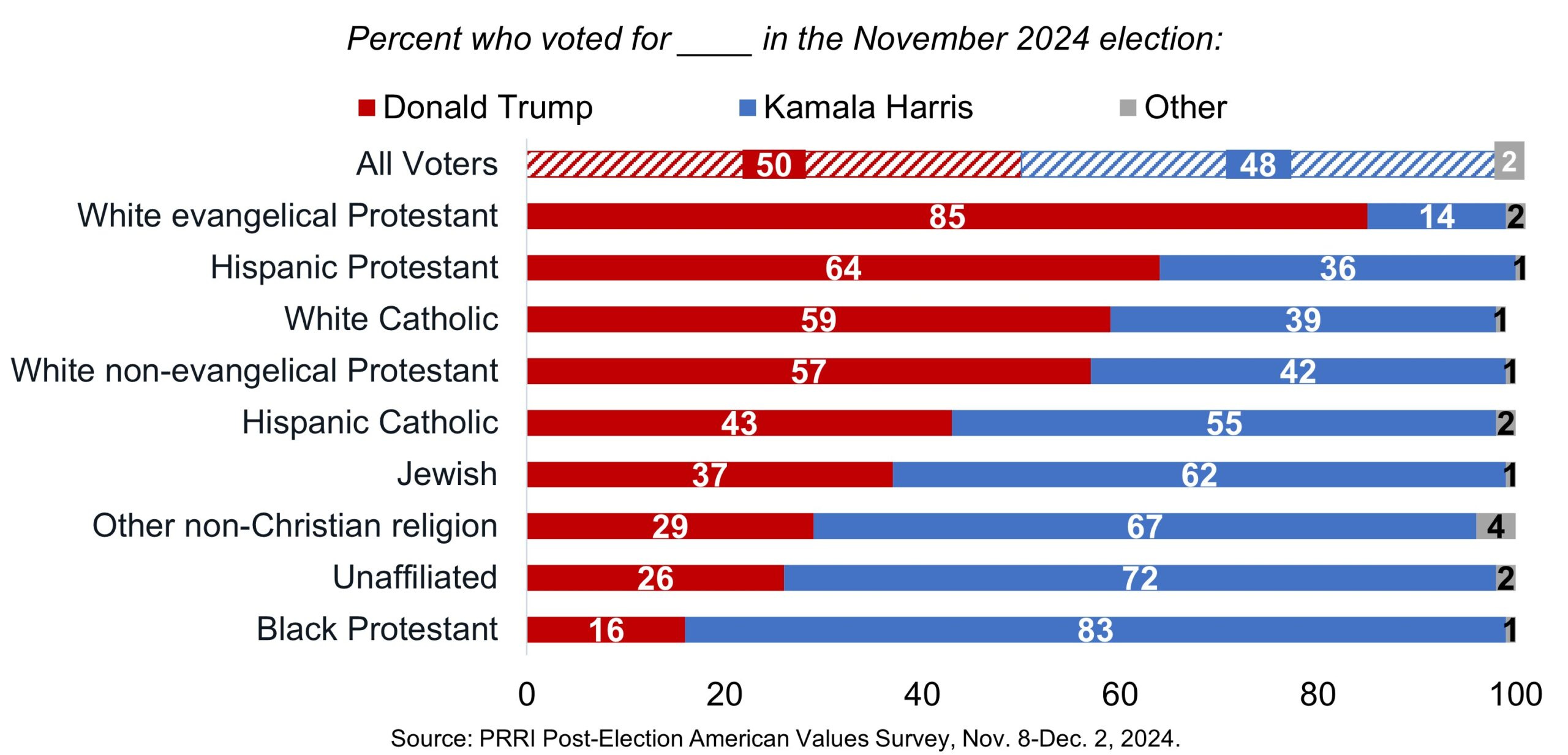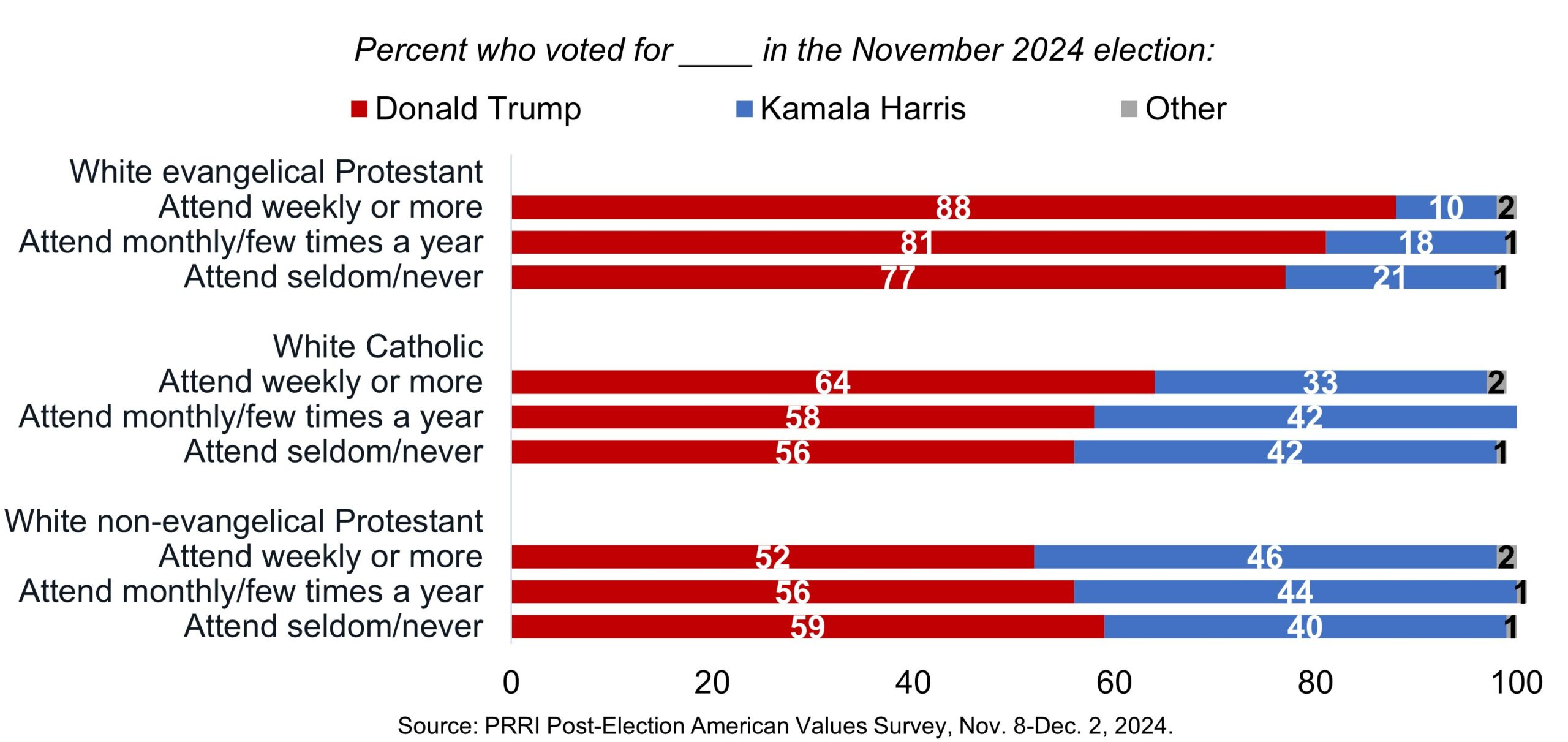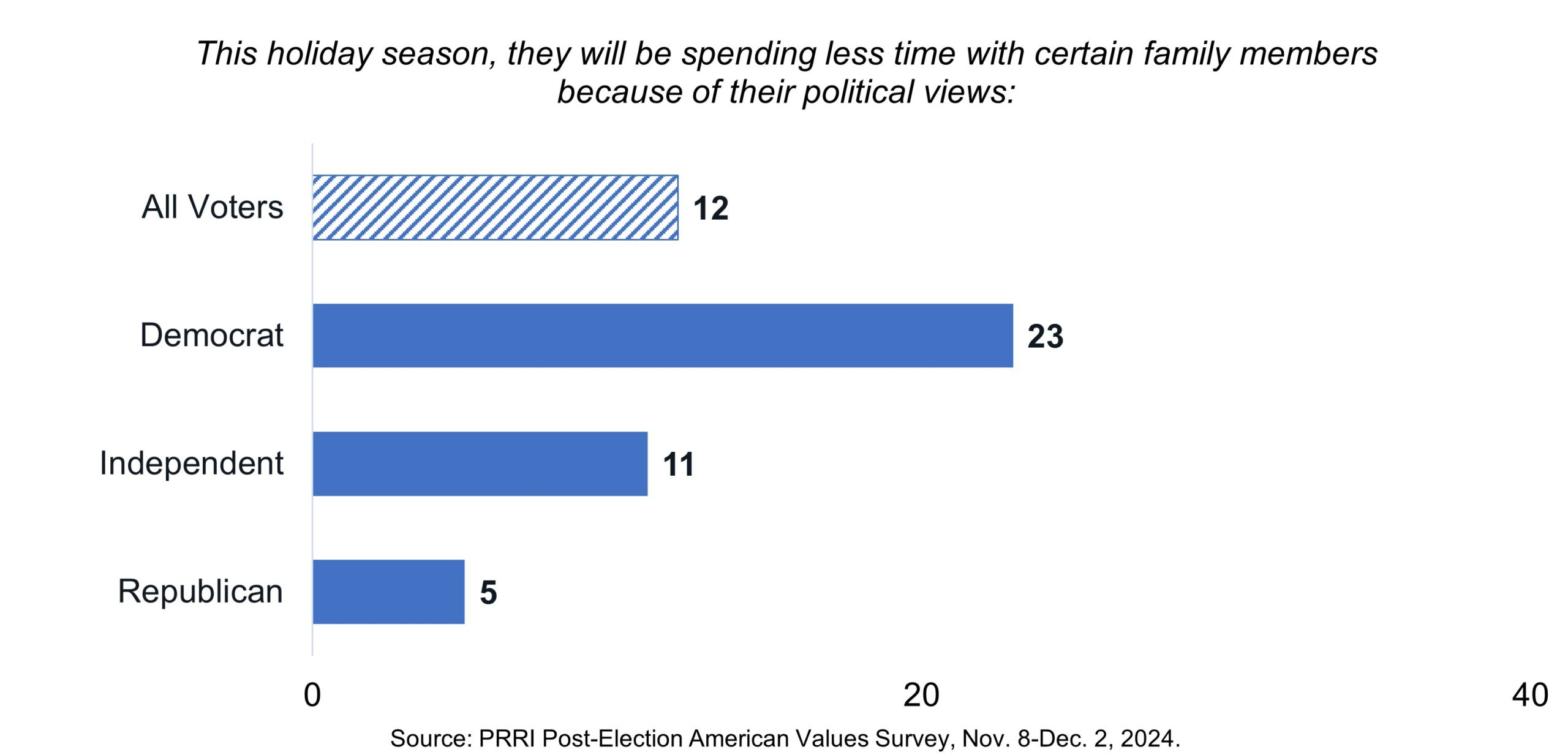The color line in the American religious electorate
As has been the case for the last four decades, when the political parties began sorting themselves along ethno-religious lines in the wake of the Civil Rights movement, the largest voting divides among Christian voters are marked by racial and ethnic identity.
- White evangelical Protestants continue to be Donald Trump’s most stalwart supporters, with 85% reporting they voted for the president-elect. Notably, nearly six in 10 white Catholics (59%) and white Mainline/nonevangelical Protestants (57%) each also voted for Trump.
- The only nonwhite Christian group voting majority for Trump is Hispanic Protestants (64%), who strongly identify as evangelical or born again.
- Catholics are also strongly divided along racial and ethnic lines. Nearly six in 10 white Catholics, compared to only 43% of Hispanic Catholics, voted for Trump; a majority (55%) of Hispanic Catholics voted for Harris.
- Strong majorities of Black Protestants, adherents of non-Christian religions and religiously unaffiliated voters report voting for Harris.
Dispelling two zombie myths about white evangelical support for Trump
There is no evidence to support what I have identified as two “zombie myths” (because they just won’t die despite lack of evidence) about white evangelical voters: 1) that they were reluctant Trump voters; or 2) that Trump’s strongest supporters in this group were Christians-in-name-only, or CINO.
- White evangelical Protestants were not “holding their nose” while voting for Trump. Heading into the 2024 election, Trump’s favorability among white evangelical voters was 73% — far above even other Trump-supporting groups such as white nonevangelical Protestants (53%) and white Catholics (51%). And two-thirds (64%) of white evangelical voters also strongly supported Trump’s most racist and even Nazi-echoing statements, such as his assertion that immigrants living in the country illegally were “poisoning the blood” of the nation.
- Among white evangelicals, those most closely connected with churches were more likely, not less likely, to support Trump. While solid majorities of white evangelical Protestants overwhelmingly supported Trump across all levels of church attendance, weekly church attenders report voting for Trump at significantly higher levels (88%) than those who seldom or never attend church (77%). In other words, it is churchgoing white evangelicals, not their less churched kin, who are the most supportive of Trump and the MAGA movement.
- Notably, the opposite church attendance pattern appears among white Mainline/nonevangelical Protestants and among African American Protestants. In these Christian groups, more frequent church attendance is correlated with lower support for Trump.
Home for the holidays? The electoral fallout
During the upcoming holiday season, nearly one in four Democratic voters say they will be spending less time with certain family members due to political differences.
Just 12% of American voters say they will be spending less time with certain family members because of their political views this holiday season. But Democratic voters (23%) are nearly five times as likely as Republican voters (5%) to say they will be spending less time with certain family members because of their political views.
Robert P. Jones serves as president and founder of PRRI and is the author of The Hidden Roots of White Supremacy and the Path to a Shared American Future and White Too Long: The Legacy of White Supremacy in American Christianity, which won a 2021 American Book Award.
This column originally appeared on Robert P. Jones’s substack #WhiteTooLong.
Related article:
PRRI survey finds ‘stark’ voter divides along religious lines





